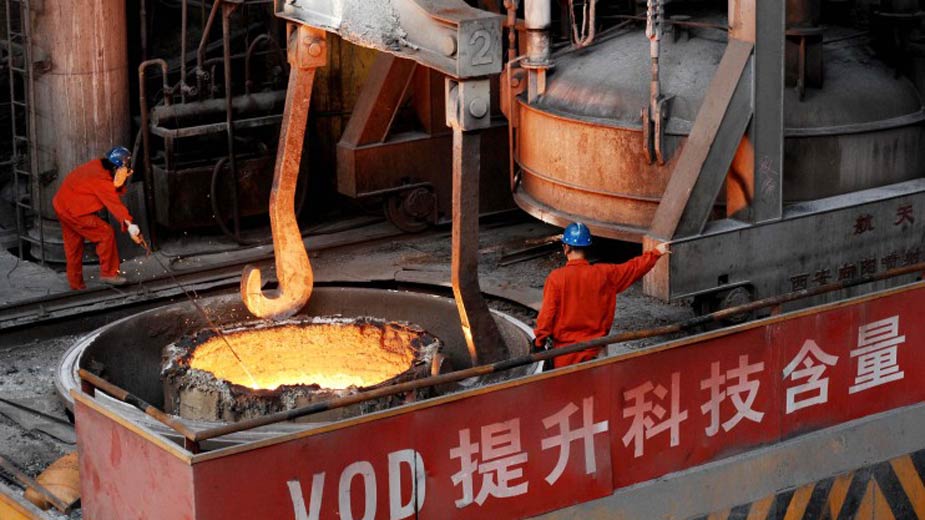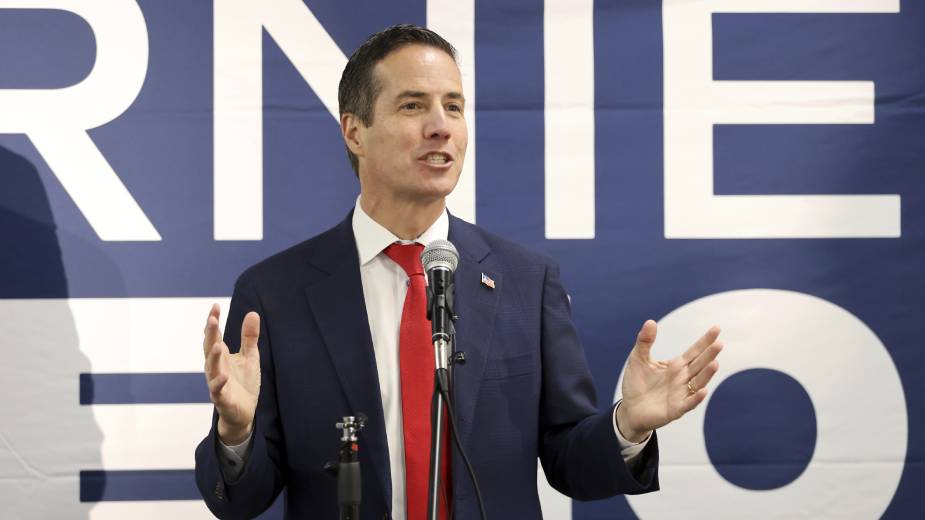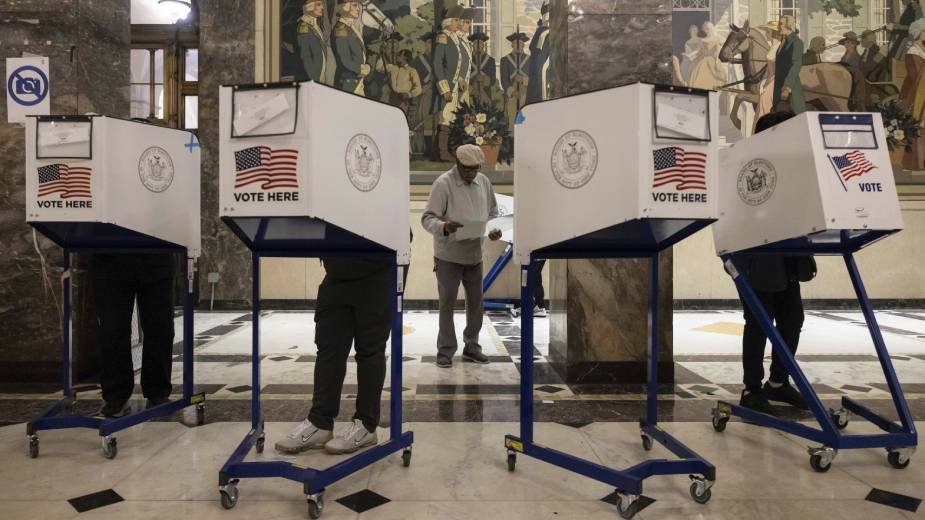Brown, Steelworkers Urge Trump to Be Tough on China
NILES, Ohio – When he ran for president, Donald Trump “talked the talk” on trade and got votes in the Mahoning Valley as a result. Now that he’s been elected, Patrick Gallagher says, Trump needs to “walk the walk.”
Gallagher, sub-district director for District 1 of the United Steelworkers of America, was among some two dozen Steelworkers who joined U.S. Sen. Sherrod Brown Monday morning at the Local 2155 hall.
In 2001, China and the United States produced about the same amount of steel, Gallagher said. Today China has the capacity to produce more than a billion tons.
“That’s all for export. It’s flooded the global market,” he said. He tied the closings of RG Steel in 2012 and Warren Steel Holdings in 2015 directly to that flooding.
“The American steel industry can survive if it’s given a level playing field,” he said. He also pointed out that China has been the sole or co-violator of 21 of the 43 trade cases the USW has filed or been a party to since August 2014.
Brown, D-Ohio, criticized Trump for his decision not to label China a currency manipulator after promising to do during the campaign, announced yesterday he would send a letter to Trump that outlines the priorities the administration should adopt in its trade discussions with China.
“The plan seems to be inadequate,” Brown said. “I haven’t seen the kind of substance we need.”
In the letter, Brown said he would call on the administration to demand China eliminate its excess steel capacity; strengthen the World Trade Organization so China can no longer “cheat the system”; insist that China drop its WRO case against the United States; and not permit passage of the Bilateral Investment Treaty, a priority for China, until it “cleans up its act.”
“Too often China cheats,” Brown said. “It causes plants in the Mahoning Valley to lay off workers or close.”
Brown also said China “puts its thumb on the scales” in any trade negotiations and is demanding to be considered a free-market economy. “In this country, we don’t subsidize our production,” he said. “In China, they do.”
In addition, he warned that the Bilateral Investment Treaty would be bad for U.S. companies, causing them to shut down and costing even more jobs.
“That’s unacceptable. That’s something that we can’t allow anymore,” he said.
Brown acknowledged there have been some “good signs” out of Trump with regard to his decision to pull out of the Trans-Pacific Partnership and his intent renegotiate the North American Free Trade Agreement. Every trade deal in the past three or four decades has been written “mostly for companies to help them outsource jobs and save money for the stockholders and give executive bonuses,” he charged.
“The problem seems to be in this White House. It’s beginning to look like a Goldman Sachs executive retreat,” he remarked. “He’s got a lot of Wall Street advising him and not enough steelworkers, not enough people that know this industry that want to standup for American steel and the American auto industry and American manufacturing advising him.”
If China doesn’t improve its behavior House Democrats will find it “very difficult to continue to try to improve relations” with the country, U.S. Rep. Tim Ryan, D-13 Ohio, said later Monday
“Consistently dumping steel to make the price cheaper to undercut our market and continue to erode our manufacturing base is not something that friends do to each other,” Ryan stated. Brown is “right on the money that we shouldn’t move forward with anything else” with the Chinese “until they clean up their act,’ he said.
Brown allowed that the White House’s desire to have China as an ally in dealing with North Korea is a concern, but noted it also is in China’s best interests for North Korea not to have a nuclear weapon or a missile capable of going to China, the United States or Japan. Those are issues that matter to U.S. national security, but the senator said he is aware of what’s happened to this country’s economic security when it doesn’t stand up to China.
“We shouldn’t’ give away the economic store to, shall we say, give incentives to China to do the right thing on North Korea,” he said.
“That’s where things get tricky,” Ryan agreed. China knows the United States needs its help but, as did Brown, he said the Chinese doesn’t want a nuclear North Korea. “So it’s in their interest as well,” he said.
Copyright 2024 The Business Journal, Youngstown, Ohio.



